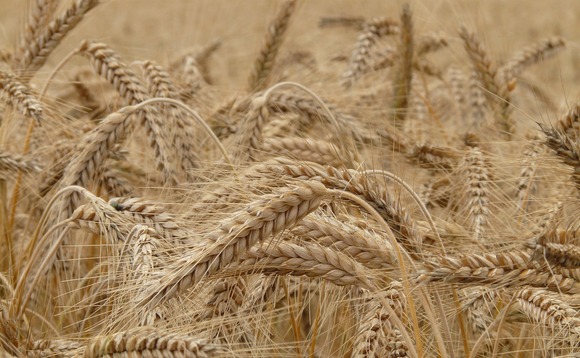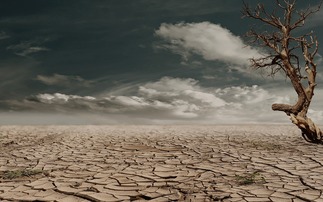Study identifies a crop of climate mitigation measures that could help hundreds of millions of smallholder farmers tackle drought, flooding, and extreme heat risks
Four-in-five of the world's 510 million smallholder famers are badly exposed to worsening climate hazards such as drought, flooding, and extreme heat, according to a new report from consultancy giant McKinsey & Company.
The firm's What climate-smart agriculture means for smallholder farmers report this week warned that these smaller producers, who are also responsible for 32 per cent of agriculture-related greenhouse gas emissions, are disproportionately at risk from escalating climate impacts.
The report warns that a failure to boost climate resilience across the smallholder sector could pose a huge threat to global food security, as these farmers currently grow a third of the world's food.
As such, McKinsey this week set out 33 targeted climate adaptation and mitigation measures, ranging from rotational grazing to dry direct-seeding technologies, which the consultancy argued could significantly strengthen climate resilience on small farms around the world.
McKinsey is now calling on governments and the private sector to help build clusters of smallholder farmers to scale up adaptation efforts, direct funding into climate resilient infrastructure, establish national agricultural research systems to promote adoption of new technologies, and help farmers bring more sustainable and climate resilient crops to market.
Moreover, the report urges policymakers to develop land management plans geared towards tackling climate hazards, increase access to crop insurance and food security planning, and use taxes, subsidies, and other incentives to encourage more sustainable farming practices. For example, it highlighted how China has altered its subsidy regime to encourage a switch from chemical to organic fertilizers, helping slash use of the former by 111.5kg per hectare.
McKinsey also claims that further guidance is needed to steer smallholders towards measures that can address the risks that are most prevalent in their region. For example, fertilizer application rates are five times higher in India than in Ethiopia, meaning that associated measures should be a higher priority.
Gillian Pais, partner at McKinsey, said that 75 per cent of smallholder farmers could feasibly adopt at least three adaptation measures outlined in the firm's report.
"With 510 million smallholder farmers across the world, often in locations highly vulnerable to climate change impacts, implementing adaptation and mitigation measures will be critical to their livelihoods," she said. "The more they implement, the greater climate resilience they will achieve.
"Moreover, with smallholder farmers accounting for a third of CO2 emissions from agriculture and food supplies, implementing climate-smart agriculture could simultaneously reduce greenhouse gas emissions, support vulnerable populations, and improve global food security."
Chania Frost, senior manager at McKinsey added that collective action was particularly important given that smallholder farms are often fragmented and generally have limited access to new technologies and financing.
"Governments, financiers, development organizations, and private-sector players have a key role to play in supporting the global smallholder-farming community's shift to more sustainable practices and furthering industry inclusivity," she said.
"This includes prioritising measures, identifying clusters of farmers for implementation of these measures, and piloting business models or incentives to drive adoption. For example, in Africa, we are already seeing actors pilot efforts to connect smallholders to carbon markets or to climate-smart lending, that encourages adoption of these practices."
However, the report warned that worsening climate impacts were also likely to result in land use change in some agricultural regions. The report concluded climate change will severely affect land suitability, with India alone set to lose 450,000 square km of productive farm land, an area roughly the size of Morocco, that is currently usable for rainfed rice cultivation.










